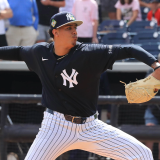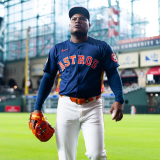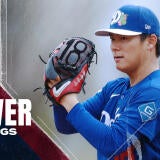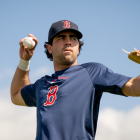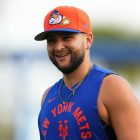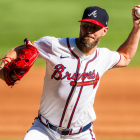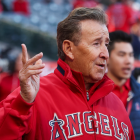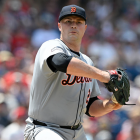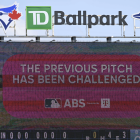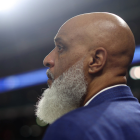Four MLB free agents still on the market who could be poised for a bounce-back season in 2024
The Red Sox clearly hope they can find the old Lucas Giolito -- who else could regain their former self?

Last month, the Boston Red Sox bolstered their rotation by signing right-handed starter Lucas Giolito to a two-year deal worth $38.5 million that includes an option for the 2026 season based on various criteria. Giolito, 29, had been one of the free-agent class's most confounding players.
He's not far removed from receiving Cy Young Award consideration in three consecutive seasons. Yet he struggled in 2022 and had an uneven 2023 campaign. Indeed, Giolito pitched for three teams last season, with his performance worsening each time he changed addresses. After posting a 3.79 ERA with the Chicago White Sox, he subsequently tallied marks of 6.89 and 7.04 with the Los Angeles Angels and the Cleveland Guardians.
Giolito himself acknowledged that his output limited his market, putting him in a position where he had to take a shorter deal to reestablish his value.
"I'm coming off of a down season and the year before that was a down season, too," Giolito said during his introductory news conference, "so for me committing to a big long-term deal at a value that I don't necessarily see myself at -- or not really having interest from teams in that type of deal -- it didn't really make sense."
Giolito's removal from the free-agent market means there's one fewer question mark for teams to solve. Rest assured, though, there are still plenty of veterans coming off confounding seasons for clubs to demystify. This is, after all, the part of the offseason where most Plan A's and B's are unavailable. It's time in some cases, then, to take a leap of faith -- the way the Red Sox did with Giolito, the way the New York Mets did with Sean Manaea, and the way other organizations will over the coming weeks.
Below, CBS Sports has highlighted four such free agents who fit the bill and were part of our top-50 rankings. In each player's case, we've not only identified what went wrong last season; we've also offered reason for hope, no matter how slight, that better days await those players this summer. Consider this a buyer's guide to the winter's biggest remaining riddles.
Now, onto the good stuff.
1. Tim Anderson, SS, (No. 23 in top 50)
Notable statistics: .245/.286/.296 (60 OPS+) in 524 plate appearances
What went wrong: Um, everything. Anderson, 30, missed several weeks early in the season with a knee injury. He never looked right after returning. His quality of contact declined; he appeared incapable of pulling the ball; he hit an unhealthy amount of ground balls (over 60%); his strikeout rate increased; and both his defense and his speed graded as subpar. Add in the August spat with José Ramírez and Anderson had one of the worst seasons in the majors.
Reason for hope: In most of the cases presented in this article, there's ball-tracking data or some other underlying measure to pin your optimism on. Not here. If you're looking under the hood for reasons why last season was a fluke, we'll save you the time and say forget it. With Anderson, you just have to write off last season. Justify it by pointing to his injury, his larger track record as a successful MLB player, or some combination of the two. Whatever it takes. But you're not going to find a silver lining in his 2023 season, so don't bother.
2. Ji-Man Choi, 1B (No. 45 in top 50)
Notable statistics: .163/.239/.385 (68 OPS+) in 117 plate appearances
What went wrong: Choi, 32, just couldn't stay healthy. He strained his Achilles tendon in April, resulting in a nearly three-month long stay on the shelf. Five weeks after his return, he was back on the injured list with a strained rib cage. He then hurt his ankle during a rehab assignment to complete the hat trick.
Reason for hope: With the caveat that Choi has encountered his share of physical issues over the years (he's required seven IL stints since the start of 2020), we're optimistic that a bounce back is in order in terms of health and in terms of production. He has a history of commanding the strike zone and hitting the ball both hard and on a line. Those traits were still on display last season, as he posted his highest average exit velocity and barrel rate in his five full years as a big-league player. We think it's fair, then, to frame last year's struggles as a sample-size concern rather than a skill issue. We expect Choi to return to being an above-average contributor against right-handed pitching.
3. Garrett Cooper, 1B (No. 46 in top 50)
Notable statistics: .251/.304/.419 (96 OPS+) in 457 plate appearances
What went wrong: Cooper finished with a below-average OPS+ for the first time as a full-time big-league player. He did that despite appearing in a career-high 123 games and setting a new personal-best with 17 home runs and 61 RBI. You can argue that "despite" is the wrong word there. Cooper had his worst single-season performance against right-handed pitching, all the while facing them at nearly a career-high rate. Perhaps a more judicious deployment of his bat would have resulted in better numbers, albeit worse counting stats?
Reason for hope: You might think that we'd be out on this one. After all, Cooper is a 33-year-old right-right first baseman coming off a subpar season in which he swung and missed more than usual. Yet we do think there's evidence that he's in for a better 2024. His ball-tracking data, specifically his share of batted balls that had an exit velocity of 95 mph or higher and a launch angle between 10 and 30 degrees, put him in the vicinity of Luis Robert Jr., Jorge Polanco, and Zack Gelof, among others. In other words, batters who had more productive seasons. Cooper certainly wouldn't be the first of his kind to flame out before he reaches his mid-30s. We just think he deserves the opportunity to prove that he has more in the tank before we'll write him as such.
4. Amed Rosario, 2B/SS (No. 49 in top 50)
Notable statistics: .263/.305/.378 (89 OPS+) in 545 plate appearances
What went wrong: Rosario, 28, saw more singles vanish in 2023 than the first rose ceremony of any given Bachelor season. Most of his ball-tracking metrics are close or identical to the ones he posted the previous two years, when he was a league-average batter. Rosario even walked more and had a higher share of hard-hit balls in 2023 than he did the previous season, his banner year.
Reason for hope: Rosario has a divisive skill set. He doesn't hit for power or walk and his hit-tool traits are not captured by barrel rate or other statistical measures. Factor in his defensive misgivings at shortstop, and that's how you end up ranked 49th on a free-agent list a season after a four-win effort. Even so, it's probably a good sign that everything except his topline results were static. In theory that suggests he could return to his more productive ways heading forward. Will that play out in practice? We'll find out soon enough, likely with Rosario as a permanent second baseman.




